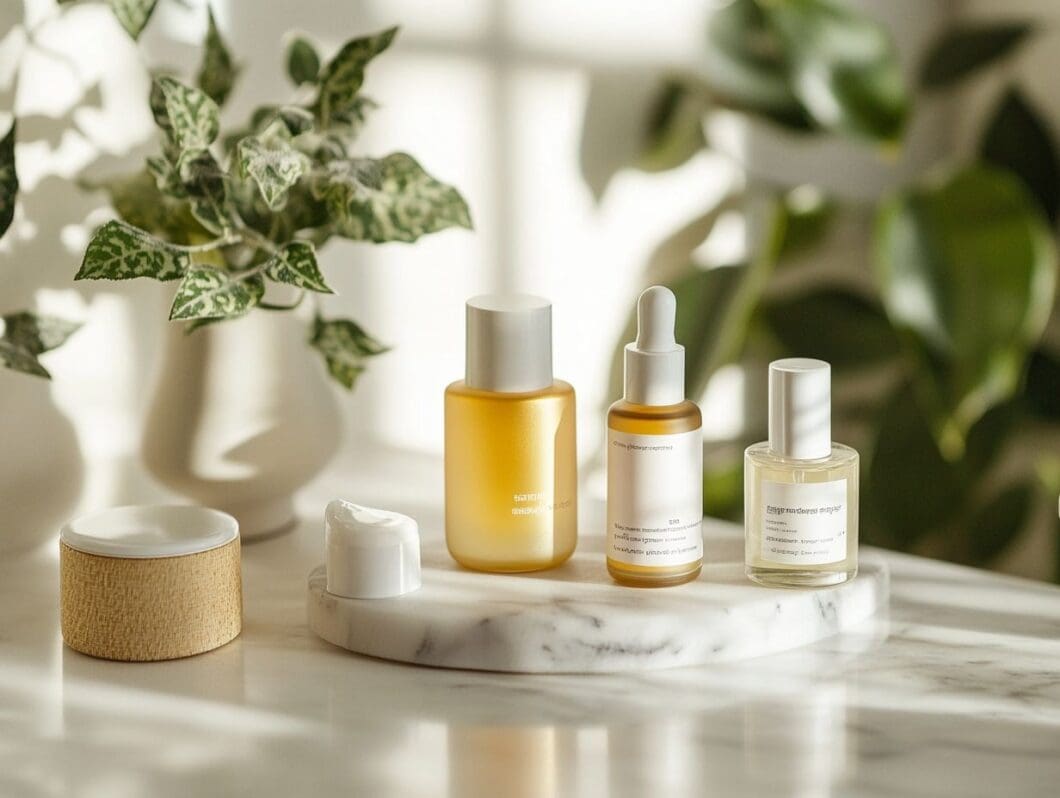As we age, our skin undergoes noticeable changes, making it essential to adapt our skincare routines accordingly.
This article explores the relationship between aging and skin health, highlighting the importance of effective skincare in combating visible signs of aging.
We will guide you through identifying your skin type, essential steps for an anti-aging routine, and the best products to incorporate.
With consistency and the right approach, you can maintain youthful skin and enhance your natural glow.
Key Takeaways:
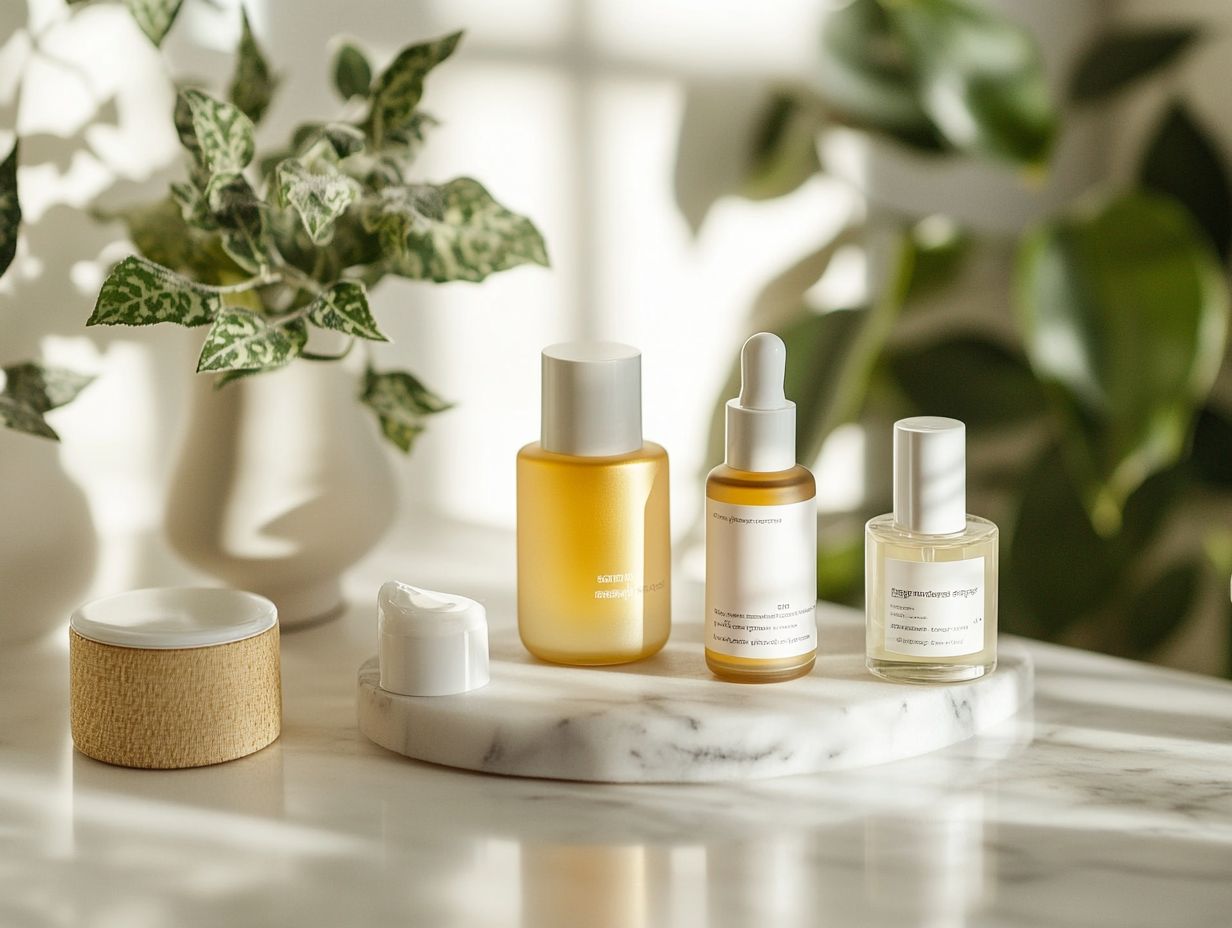
Understanding Aging and Skincare
Understanding the relationship between aging and skincare is essential for maintaining healthy skin throughout the aging process. This process affects skin texture, elasticity, and overall appearance, resulting in fine lines, redness, and other visible signs of aging.
By acknowledging the evolution of skincare needs, individuals can adjust their daily routines to promote collagen production and support the moisture barrier, thereby contributing to a more youthful appearance.
Consulting with dermatologists can offer valuable insights into effective anti-aging treatments and products available in the market, ensuring a comprehensive and informed approach to skincare.
How Aging Affects the Skin
Aging has a significant impact on the skin, primarily through the reduction of collagen production and skin elasticity, which can lead to the development of fine lines and various skin conditions.
As individuals age, the skin undergoes notable physiological changes that can diminish its youthful appearance. The gradual decline in collagen, a vital protein responsible for maintaining skin structure and firmness, exacerbates the loss of moisture within the dermis. Consequently, this depletion leads to an uneven texture, resulting in skin that appears more brittle and less vibrant. Hormonal changes can further modify sebum production, contributing to dryness and increasing the skin’s susceptibility to irritations.
The cumulative effects of these factors often manifest as wrinkles, sagging, and a lackluster appearance, prompting many individuals to seek effective skincare solutions to address the signs of aging.
Importance of Skincare in Anti-Aging
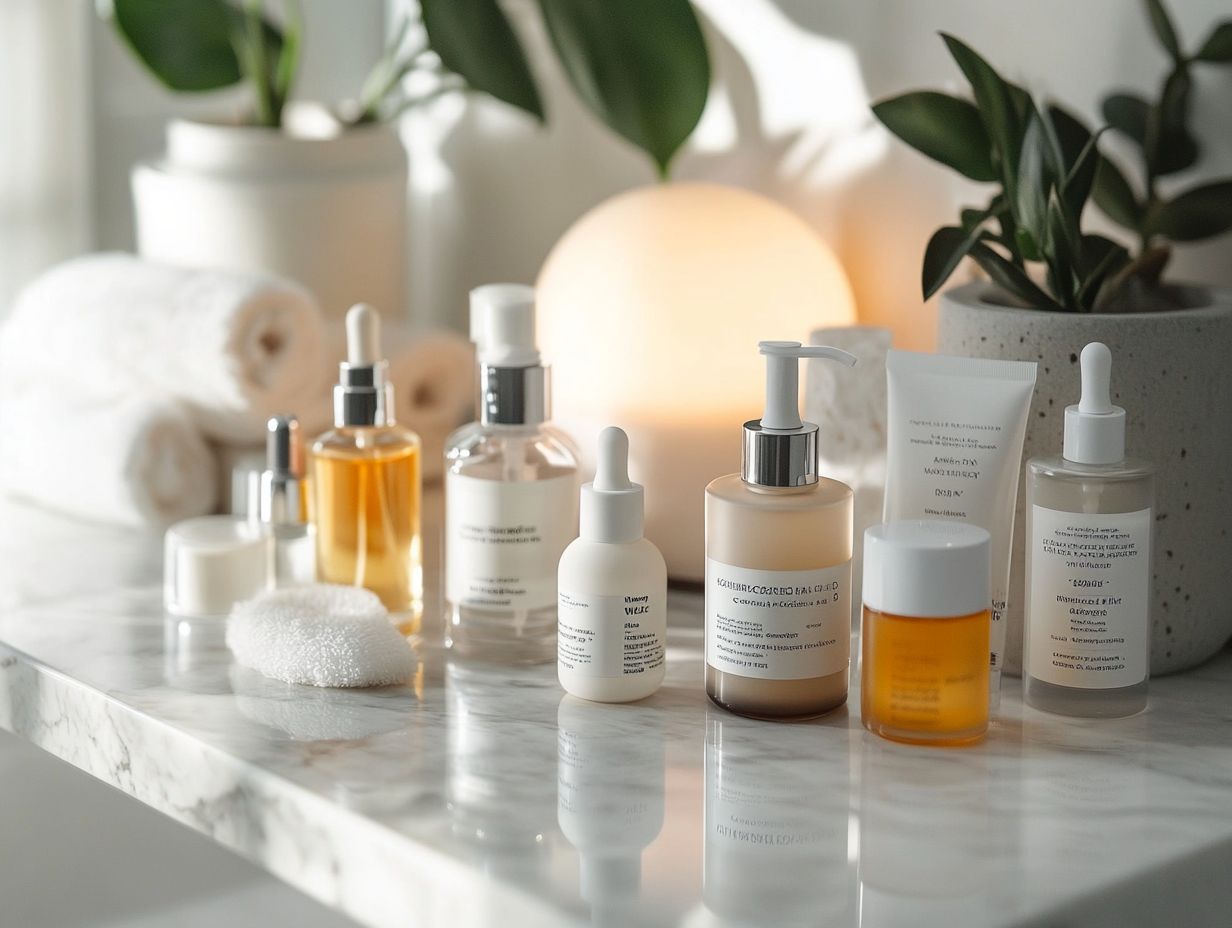
Skincare plays a crucial role in anti-aging by addressing the visible effects of aging and promoting overall skin health through a well-structured skincare routine.
To enhance the skin’s youthful appearance, it is essential to incorporate targeted anti-aging products, such as moisturizers and topical treatments. These products typically contain ingredients like hyaluronic acid and retinol, which not only hydrate the skin but also stimulate collagen production, thereby reducing the appearance of fine lines and improving skin texture.
Skincare experts advise adhering to a consistent regimen tailored to an individual’s skin type for optimal results. Additionally, applying products both in the morning and evening is recommended, with sun protection being an essential step during daylight hours.
By implementing these expert strategies, individuals can establish a robust defense against premature aging and promote a healthier complexion.
Identifying Your Skin Type
Identifying one’s skin type is crucial for selecting appropriate skincare products and effectively addressing specific skin concerns. This understanding ensures optimal skin health and enhances overall appearance.
Determining Your Skin Type
Determining an individual’s skin type can be accomplished through various methods, including evaluating skin hydration levels and consulting with a dermatologist for professional insights.
One widely recognized technique is the “Bare-Faced Method,” which involves cleansing the face and allowing it to remain free of products for several hours to observe its natural state. For those seeking a more measurable approach, hydration tests can provide insight into whether the skin is classified as dry, oily, or combination.
Each skin type exhibits distinct characteristics that necessitate tailored product selections; for instance, oily skin typically benefits from lightweight, oil-free formulations, whereas dry skin requires richer, deeply moisturizing products.
Understanding these nuances not only facilitates the development of an effective skincare routine but also contributes to the promotion of healthier skin over time.
Essential Steps in an Anti-Aging Skincare Routine
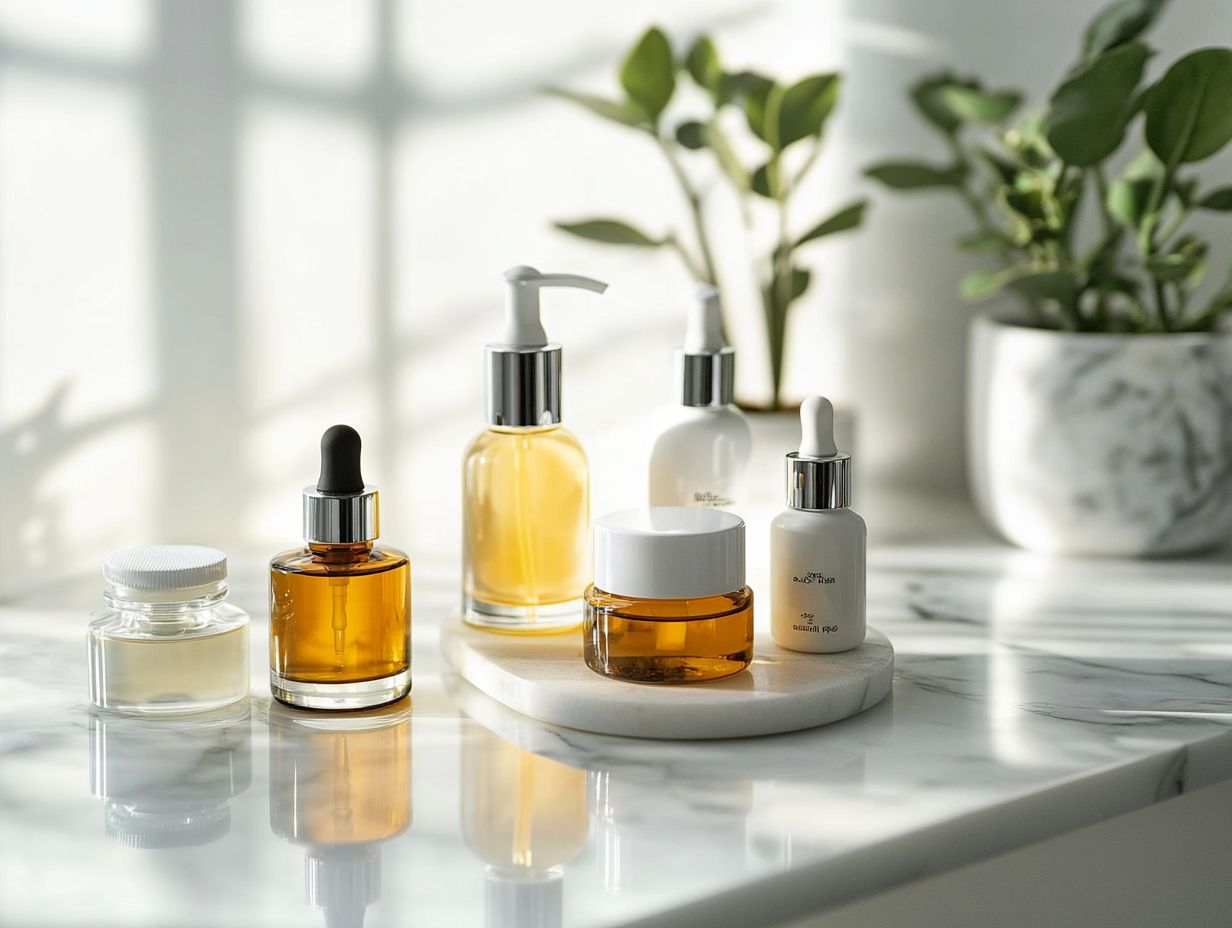
An effective anti-aging skincare regimen comprises essential steps, including thorough cleansing, adequate moisturizing, and diligent sun protection. Each of these components plays a critical role in the maintenance of youthful skin.
Cleansing and Exfoliation
Cleansing and exfoliation are essential components of an anti-aging skincare regimen, as they effectively remove impurities and promote enhanced skin texture.
Incorporating a diverse range of cleansers can significantly improve the efficacy of this routine. For instance, gentle cleansers are particularly suitable for sensitive skin, offering a soothing effect while effectively removing dirt without stripping the skin of its essential moisture. Conversely, individuals with oily or acne-prone skin may benefit from foaming or salicylic acid-based cleansers, which help eliminate excess oil and prevent breakouts.
In terms of exfoliation, the choice between physical and chemical methods should be guided by individual skin requirements. Physical exfoliators, such as scrubs, can provide immediate results, while chemical exfoliants like AHAs and BHAs gently dissolve dead skin cells, leading to a more refined appearance over time.
These tailored selections not only enhance the skin’s radiance but also contribute to an overall youthful appearance.
Moisturizing and Hydrating
Moisturizing and hydrating are essential components of an anti-aging skincare routine, as they replenish moisture and support the skin’s moisture barrier.
The appropriate use of moisturizers and hydrating creams can significantly enhance the overall appearance and texture of the skin, promoting a youthful glow. Formulations that are rich in key ingredients, such as hyaluronic acid and ceramides, are particularly effective in attracting moisture to the skin and retaining it.
Hyaluronic acid functions like a sponge, absorbing water and maintaining hydration levels, while ceramides assist in repairing and strengthening the skin’s natural barrier, thereby preventing further moisture loss.
By addressing dryness and the signs of aging, these products not only provide immediate relief but also contribute to long-term skin health, making effective hydration an critical element of any comprehensive skincare regimen.
Sun Protection
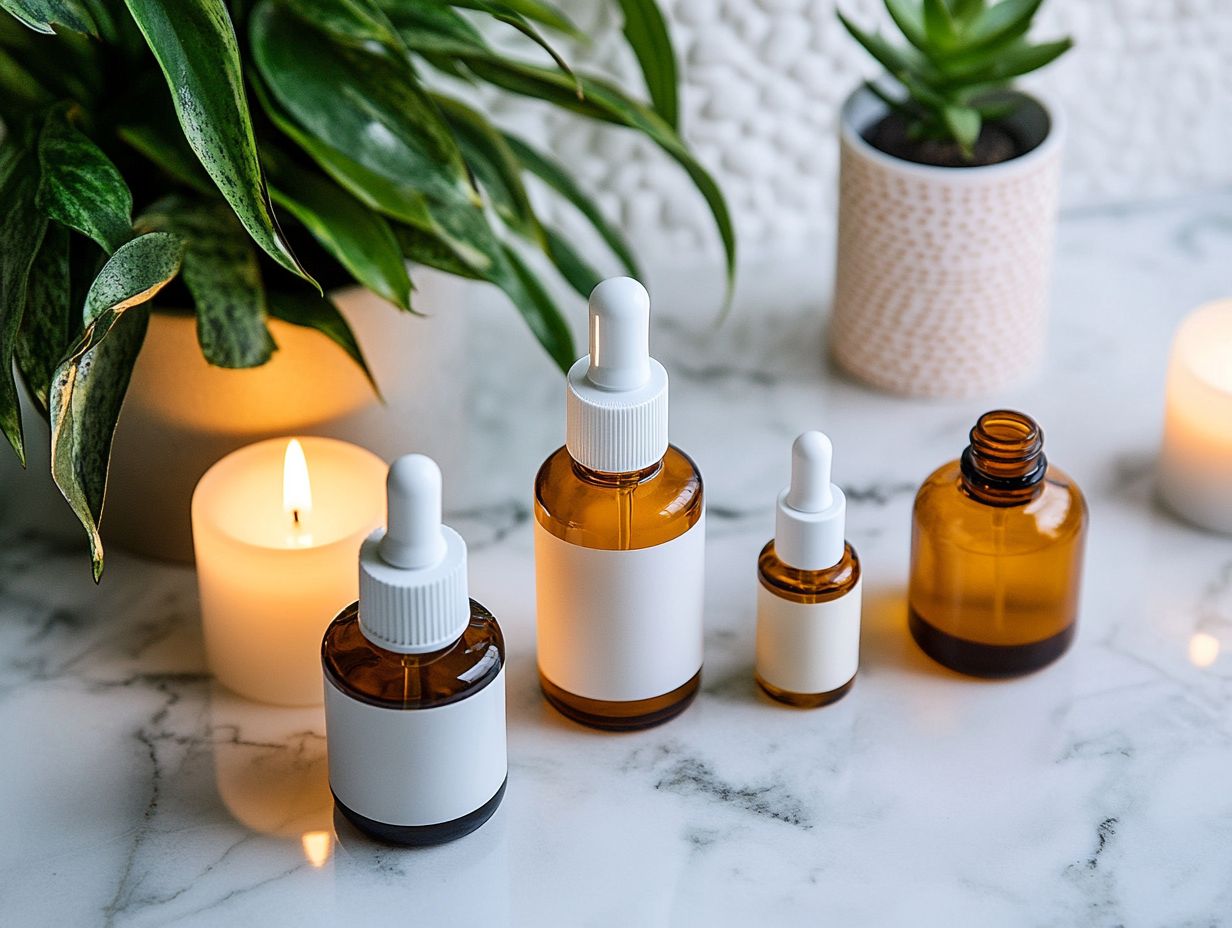
Sun protection is a critical component of any skincare regimen, particularly in the realm of anti-aging, as ultraviolet (UV) exposure can cause significant skin damage and hasten the onset of aging signs.
Incorporating a broad-spectrum sunscreen with an appropriate SPF into daily practices can be transformative for individuals seeking to maintain youthful skin. This type of sunscreen provides protection against both UVA and UVB rays, which are known contributors to premature aging, including the development of wrinkles and sunspots.
To maximize the benefits, it is essential to apply the product generously to all exposed areas, including the face, neck, and ears, at least 15 minutes prior to sun exposure. Reapplication every two hours, or more frequently if one is swimming or perspiring, is necessary to ensure sustained protection.
With consistent use of sunscreen over time, individuals can achieve remarkable improvements in skin quality and appearance, establishing it as a vital ally in the pursuit of lasting youthfulness.
Incorporating Anti-Aging Products
Incorporating anti-aging products into one’s skincare regimen is essential for optimizing skin benefits and effectively addressing specific aging concerns.
Key Ingredients to Look for
When selecting anti-aging products, it is essential to identify key ingredients such as vitamin C, retinol, and antioxidants, each recognized for their significant contributions to promoting collagen synthesis and diminishing the appearance of fine lines.
Vitamin C is particularly esteemed for its ability to brighten skin tone and protect against oxidative stress, which can hasten the aging process. Clinical studies have demonstrated that its application can lead to notable improvements in skin texture and effectively address hyperpigmentation.
Similarly, retinol, a derivative of vitamin A, is widely acknowledged for its capacity to enhance cell turnover, thereby revealing smoother and more radiant skin. Numerous dermatological trials substantiate its effectiveness in reducing the visibility of winkles.
Additionally, antioxidants like green tea extract and coenzyme Q10 further bolster skin vitality by neutralizing harmful free radicals, contributing to a more youthful appearance.
Collectively, these ingredients produce a powerful synergy, allowing the skin to appear rejuvenated and resilient.
How to Choose the Right Products
Selecting the appropriate skincare products is critical for achieving desired outcomes, necessitating careful consideration of individual skin types and consultation with a dermatologist for customized recommendations.
A comprehensive understanding of one’s specific skin type—whether it be oily, dry, combination, or sensitive—plays a significant role in the selection of products. Addressing particular skin concerns, such as acne, hyperpigmentation, or fine lines, should inform the decision-making process. For more guidance, check out How to Build an Effective Anti-Aging Skincare Routine.
It is essential to prioritize the efficacy of products, as many may make promises that they do not fulfill. User reviews can offer valuable insights, helping to determine whether a specific serum or moisturizer genuinely lives up to its claims.
By emphasizing these factors, individuals can make informed choices that align with their skin’s requirements, ultimately ensuring a more radiant and healthy complexion.
Maintaining Your Skincare Routine
Maintaining a consistent skincare routine is essential for achieving long-term results and effectively reducing the signs of aging through appropriate skincare practices.
Tips for Consistency and Long-Term Results
Consistency is essential in any skincare regimen, and the implementation of straightforward skincare tips can facilitate the achievement and maintenance of long-term results.
To remain on track, it is crucial to establish a product application schedule. This may involve applying a gentle cleanser both in the morning and evening, followed by a hydrating moisturizer and sunscreen during the day.
For individuals who find it challenging to remember their routine, setting reminders on a smartphone or placing visual cues near the sink can prove effective.
It is important to monitor how one’s skin responds to the products used and to make necessary adjustments, such as reducing the frequency of application or exploring alternative formulations.
Regularly reassessing these strategies will give the power to individuals to cultivate a successful skincare habit.


